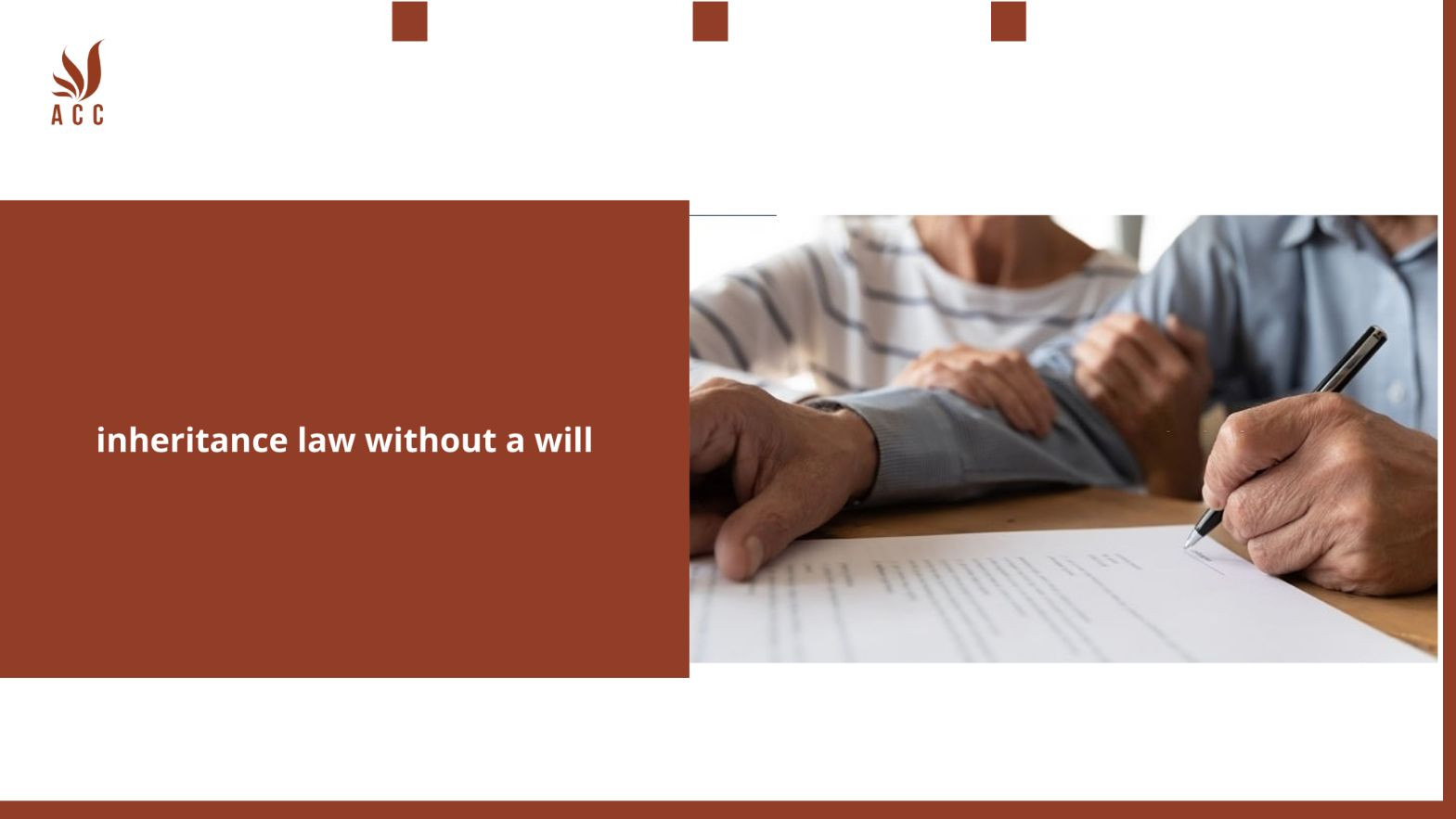Inheritance laws that govern the distribution of an individual's estate when they pass away without a valid will are typically referred to as the laws of intestate succession. These laws vary from one jurisdiction to another, but there are some common principles that often apply. Keep in mind that the specific details can vary significantly depending on the laws of the relevant jurisdiction. Here is a general overview:

1. Spouse's Share:
In many jurisdictions, a surviving spouse is typically entitled to a significant portion of the deceased person's estate, even without a will. The exact share may vary, but it's often either a certain percentage of the estate or all of the estate if there are no surviving children, parents, or siblings.
2. Children's Share:
If there are surviving children, they may inherit a portion of the estate. The exact share typically depends on the number of children and whether the spouse is also a parent of those children. In some cases, children may inherit equally, while in others, the spouse may receive a larger share.
3. Parents and Siblings:
If there is no surviving spouse or children, the estate may pass to the deceased person's parents or, if they are not alive, to siblings or other close relatives.
4. Extended Family:
In some cases, if there are no surviving close relatives, the estate may pass to more distant relatives, such as aunts, uncles, cousins, or even more distant relatives, depending on the jurisdiction's laws.
5. No Heirs:
If no eligible heirs can be found, the estate may escheat, which means it reverts to the state. However, escheat is relatively rare, as most jurisdictions have provisions to ensure that even distant relatives or the state itself do not inherit until all possible heirs have been considered.
6. Assets Outside of Probate:
It's important to note that not all assets may be subject to the laws of intestate succession. Assets with designated beneficiaries, such as life insurance policies or retirement accounts, typically pass directly to the named beneficiaries and are not part of the probate process.
Q&A
Q1. What happens if someone passes away without a will?
- When someone passes away without a will, it is known as dying intestate. In such cases, the distribution of the deceased person's assets is determined by the laws of intestacy in the jurisdiction where they resided. These laws provide a predetermined order of inheritance, typically prioritizing close family members such as spouses, children, parents, and siblings. The specific distribution will depend on the laws of the jurisdiction and the family relationships involved.
Q2. Who is entitled to inherit in the absence of a will?
- The entitlement to inherit in the absence of a will varies depending on the jurisdiction. Generally, the surviving spouse and children are given priority in the distribution of assets. If there is no surviving spouse or children, the assets may pass to parents, siblings, or other close relatives according to the laws of intestacy. The specific order of inheritance can vary, so it is important to consult the laws of your jurisdiction to determine the exact entitlements.
Q3. Can individuals be excluded from inheriting without a will?
- In general, individuals cannot be excluded from inheriting without a will if they are entitled to a share under the laws of intestacy. The laws of intestacy typically prioritize certain family members, and they have a legal right to inherit according to the predetermined order. However, there may be exceptions or specific circumstances where an individual can be excluded, such as in cases of disinheritance due to legal grounds or certain limitations set by the law.
Q4. Can inheritance disputes arise without a will?
- Yes, inheritance disputes can arise without a will. In the absence of a will, disagreements may occur among family members regarding the distribution of assets or the application of intestacy laws. Disputes can arise if there are conflicting claims to the estate, questions about the validity of relationships, or concerns about the fairness of the distribution. These disputes can lead to legal proceedings and court involvement to resolve the issues. It is advisable to seek legal guidance to navigate such disputes and ensure a fair distribution of assets.
Nội dung bài viết:






Bình luận